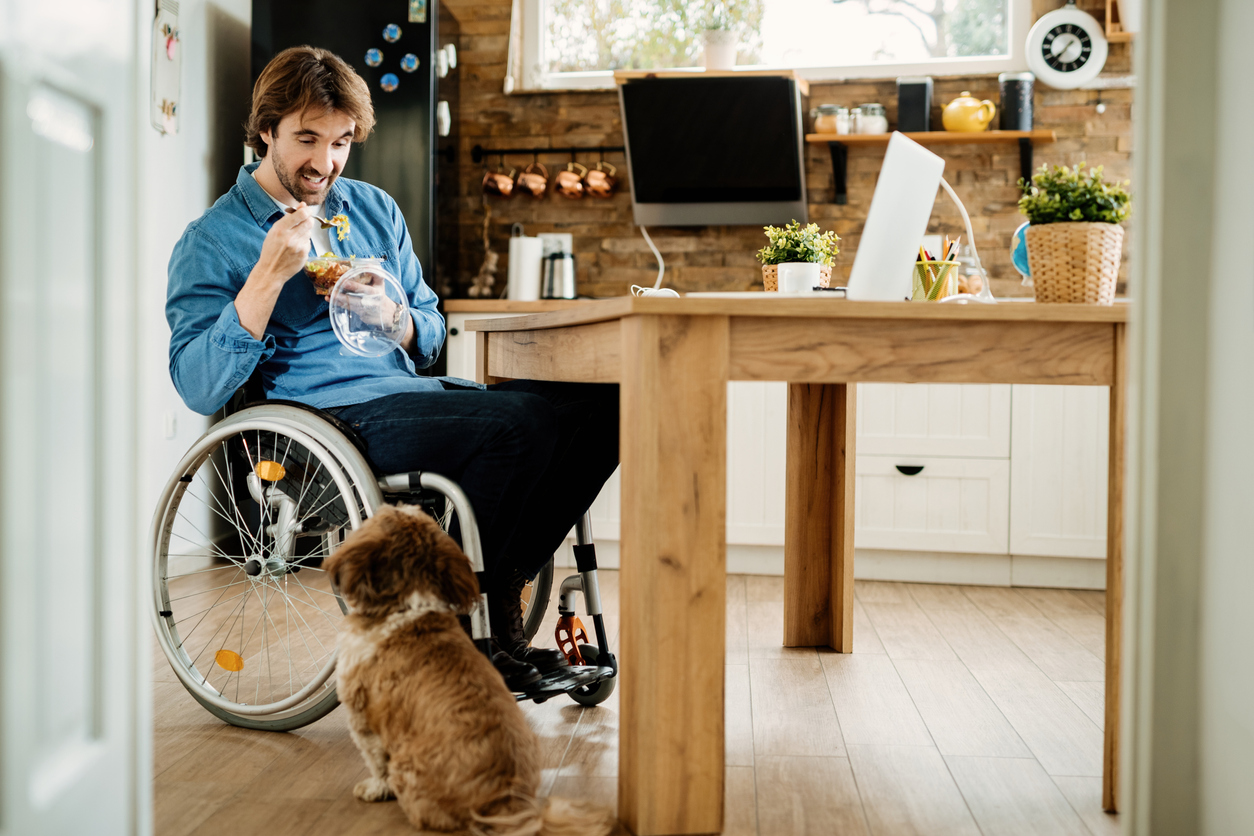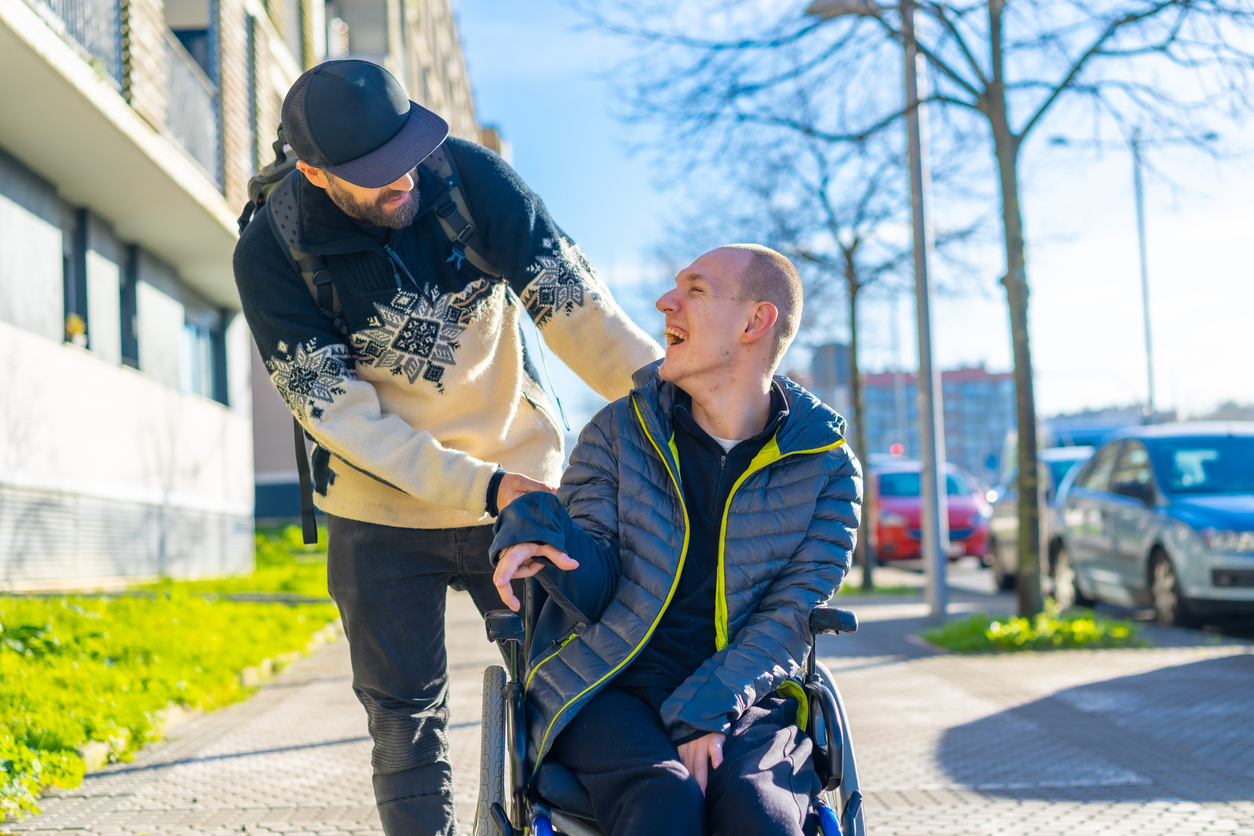Times are more stressful these days with the unprecedented COVID-19 pandemic upending normal routines and creating uncertainty and anxiety for everyone. Now more than ever we need to stay focused on self-care as much as possible, and prioritize healthy habits and stress-relieving techniques to maintain mental and physical wellbeing under difficult circumstances.
Gut Health and Stress are Interconnected
Both the brain and the gut have millions of neurons that constantly communicate with each other. This connection is commonly referred to as the ‘gut-brain connection’. This connection is reciprocal, meaning that our physical and emotional health and wellbeing are tied together when it comes to gut health.
An example of this connection that is familiar to everyone is how we say we have “butterflies” in our stomach when we are nervous or excited. “Butterflies” are the physical manifestation of the way our gastrointestinal tract responds to mental conditions like stress and anxiety. Stress also changes gut bacteria, which can impact mood, completing the gut-brain loop.
Stress and Bowel Regularity
When we are stressed, anxious or experiencing other mental conditions such as depression, our eating, hydration, and fitness habits often change. Under stress, we sometimes eat too much, or too little, or change our normal nutritional patterns in some way. Fitness and hydration are also typically impacted by stress, especially when we are still learning every day about what is safe and what isn’t and making adjustments to our ‘normal’ routine to find new ways to
care for our mental and physical well being.
Any change to our normal routine or to nutrition, fitness, and hydration has a direct impact on bowel health and regularity. Stress alters the way waste travels through the bowels, causing constipation or diarrhea. Under stress, the way the body absorbs nutrients from the intestines changes which can produce constipation, diarrhea, gas, bloating, and more.
Due to the increased safety precautions and protocols surrounding COVID-19, there may be uncertainty and fluctuations in routine care from family, friends, and caregivers as we all adjust to the proper protocols to keep everyone safe from exposure. This also causes uncertainty and stress, and keeping up with your regular bowel care program and sticking to as regular a routine as possible may be challenging.
Tips for Reducing Stress
Everybody’s ‘normal’ routines are disrupted due to COVID-19, but for people who rely on caregivers there are additional stressors as they consider how to navigate these uncertain times. Despite all that is unknown, there are several things to do to help relieve daily stress and stay focused on wellness and stress reduction as much as possible.
Make a Plan: When it comes to caregivers, it helps to get informed about what the plan will be in the event you, or a caregiver, become ill or quarantined. Make a list of the services you receive that are essential to keep you safe and healthy, including your bowel management program, and come up with contingency plans. Ask your care provider what their policies are in the event a caregiver becomes ill or quarantined, and talk with family and close friends to ask for help in the event it is needed. Planning ahead reduces stress and feelings of uncertainty and powerlessness.
Be Prepared: While you likely already have something like this for emergencies, it may be helpful to write out (or video record) instructions, plans, or things you want to express to a new caregiver or healthcare worker. You can include an up-to-date list of medications, your bowel management protocol, and anything your current caregiver would like a new care support person to know. If you are experiencing anxiety about your own risk of contracting COVID-19, call your current caregiver(s) and ask them to clearly advise you on the steps they are taking to protect their clients.
Nutrition: Proper nutrition is always important, but in times of stress it’s more important than ever. Consume a balanced diet of whole grains, vegetables, fruit, and fiber to give you energy, protect your immune system and help keep your bowels moving. To alleviate constipation, it’s especially important to consume the
daily recommended amount of fiber and eat fiber-rich foods
Fitness: A regular fitness regime is very effective in reducing stress, and also helps keep bowels moving! Anything that gets the body moving, like stretching, yoga, physical therapy exercises, or other regular fitness routines are important for reducing stress, as exercise releases stress-busting neurotransmitters like dopamine and serotonin.
Self-Care: It is vital to carve out ‘me-time’ to decompress and engage in relaxation techniques. Meditation, yoga, stretching, warm baths, or curling up with a good book for even 20 minutes each day are some examples. Some people have too much time on their hands during quarantine, and are looking for ways to stave off boredom. Your ‘me-time’ should be something extra special you treat yourself to each day to renew and refresh your spirit.
Online Resources: There are thousands of entertaining and educational online resources to help with stress reduction, including free online courses and classes! YouTube, for example, has many free yoga, meditation, and other stress-reducing resources. Mindfulness and/or meditation podcasts are also free and can be the perfect ‘time-out’ during a stressful day.
Udemy is offering a host of free online courses on a variety of topics, including stress management.
Join the Thrive Community!
The
Thrive Community Facebook Group is a quickly growing, private space for any person with a disability, as well as caregivers and healthcare providers that touch their lives.
Our purpose is to provide a safe, educational space for group members to ask every question, connect with their peers, and empower each other through communication and connection. Our conversations are led by incredible individuals who themselves are living and thriving.
For more enlightening resources, information, and discussion, join the
Enemeez® Thrive Community today!
Disclaimer:
The material contained is for reference purposes only. Alliance Labs, LLC and Summit Pharmaceuticals do not assume responsibility for patient care. Consult a physician prior to use. Copyright 2020 Summit Pharmaceuticals and Alliance Labs, LLC.
Sources:
https://www.health.harvard.edu/diseases-and-conditions/the-gut-brain-connection
https://www.apa.org/helpcenter/stress/effects-gastrointestinal
https://www.webmd.com/balance/guide/blissing-out-10-relaxation-techniques-reduce-stress-spot#2
https://www.health.qld.gov.au/qscis/covid-19-for-people-with-spinal-cord-injury/making-a-covid-19-plan 












